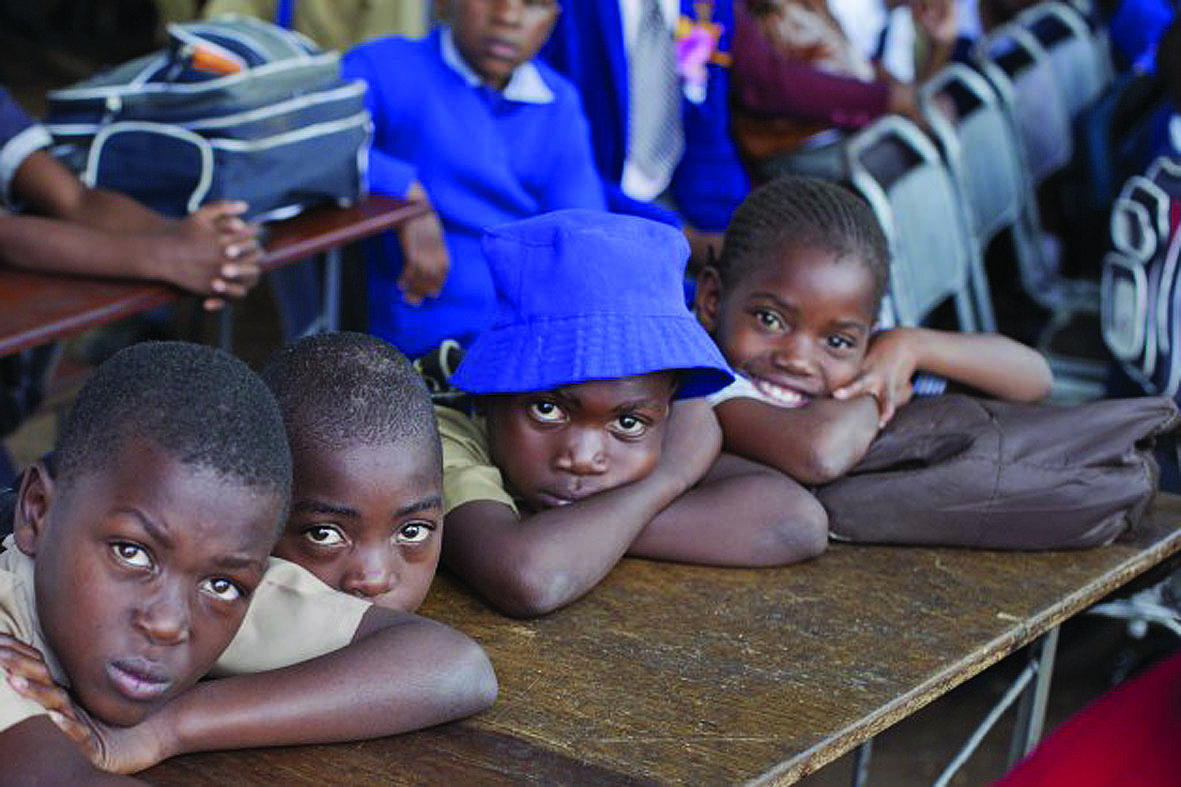
A group of teenagers aged between 15 and 19 are huddled in a corner comforting their friend as tears of frustration stream down his cheeks. The youngsters chatter as they imbibe pernicious liquor famed for speedily inducing maniac behaviour.
BY GIBSON NYIKADZINO
They are angry at the manner in which their parents treat them and regulate their life choices, and seek solace in the beer, hoping it can dissipate their “problems”.
Traditionally, Zimbabwean parents believe that if you spare the rod you will spoil the child so the stick is used to instil discipline.
Early this year, a High Court ruling by judge Justice Esther Muremba, that caning or corporal punishment on children is an unconstitutional act, brewed an assortment of sentiments that have made it difficult for parents, teachers and children to tread a middle ground.
Children’s rights activists welcomed the ruling, but retired teachers and laymen have another view.
Lawyer and children’s rights activist Misheck Mutapuki applauded the ruling suggesting that teachers should come up with better disciplinary methods that are not about pain inducement.
“Beating is what most teachers do to instil discipline in minors. They use pain to get compliance and induce fear by using an item or object on human flesh,” he said.
- Chamisa under fire over US$120K donation
- Mavhunga puts DeMbare into Chibuku quarterfinals
- Pension funds bet on Cabora Bassa oilfields
- Councils defy govt fire tender directive
Keep Reading
Mutapuki added that there was need for educationists to device better methods of reprimanding pupils.
“I am beginning to question the teaching methods that are used in schools. Teachers need to improve their methods and motivate their pupils. You cannot motivate kids by inducing pain,” he said.
Mutapuki urged teachers’ unions to consider revisiting their code of practice to give consistence across the country as educating the mind is critical while discipline follows.
Zimbabwe is a signatory to the Convention on the Rights of the Child, which provides that no child shall be subjected to torture or other cruel, inhuman or degrading treatment or punishment.
For the largely conservative and Christian population of Zimbabwe, disciplining children using the rod has been regarded as one of the best methods to get children to toe the line.

A lecturer at a teachers’ training college, Munashe Maramba, said failure to discipline children using corporal punishment in schools was a factor that derided the social conventions that have been in existence.
“The government should not be swayed by some conventions that will force us give up what we value,” said Maramba who stays in Braeside.
“Disciplining children by corporal punishment is inculcating the concept of Ubuntu in their lives.
“Children spend most of their time at school and it is the responsibility of the teacher to take care of that business and make sure pupils are acting and behaving in the manner required of them.”
In February this year, Roman Catholic Church leader Pope Francis said it is “good to spank your children to discipline them — as long as their dignity is maintained. Never slap them in the face, it is humiliating”.
Absolom Banda, a 68-year-old retired teacher whose career spanned 33 years, had disgust written all over his face.
“If parents concur, then there is something wrong with their conscience. If the government wants teachers to commit horrendous acts in schools, then let that be,” he said.
“There are people I taught and some up to today are thankful of the disciplinary measures that I carried out. When children are beaten, they are not being abused. They are being disciplined to know right from wrong.”
While by traditional consensus parents and teachers are expected to spank children for the purpose of discipline, some parents do not want their children to be beaten at school.
Lisa Madiro, a mother of two, said she did not want her children spanked at school as some teachers were doing it to vent their frustrations. She called on teachers to reconsider their methods when teaching.
“It seems there is an evil spirit that is roaming in schools,” she said. “Some teachers are actually possessed because the way they discipline children is abnormal. I understand when a child is beaten for discipline, not as abuse. Some have gone to teaching practice without any calling and they have been disappointed by the remuneration, yet they comfort themselves by beating children.
She added: “Corporal punishment should be struck off. Remember children are not adults. When an adult commits a crime, they should be arrested because they know the law. Children are people below the age of 18. They should be taught the law, hence their lack of the knowledge of the law should be regarded.”
To heed the advice of parents and the elderly has now been labelled “old school ideals”.
Clive (17), a lower sixth student, said: “I would love to take all that my parents and teachers say, but I should not be forced to listen to that. When they beat me I will not regard their advice anymore. They should understand that we have lived in different ages and clinging on the past is retrogressive.
“We are not babies anymore. There are things that need to be realigned and the court’s gesture to remove corporal punishment is a reality that parents should live with.”











